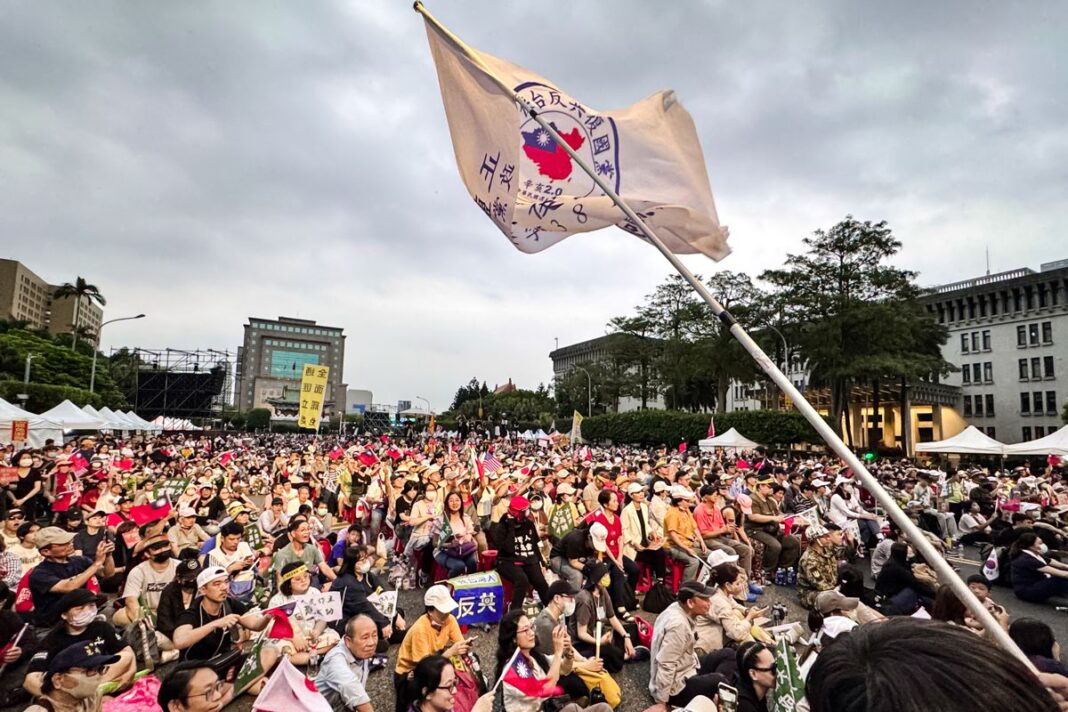Confronted with infiltration and coercion tactics from the Chinese regime, Taiwanese society is fighting back.
Some 100 miles off the Chinese coast, the democratic island of Taiwan has existed for decades under a creeping communist shadow.
Deeming it a breakaway province, the the Chinese Communist Party (CCP) has been steadily asserting control over the island, bullying it with military jets and simulating what Adm. Samuel Paparo, commander of U.S. Indo-Pacific Command, calls “dress rehearsals” for attack.
But as the world fixates on how and when Beijing will make its move, inside Taiwan, the battle is already on. It’s a war without gunfire.
Over the past few months, a grassroots movement has swept through Taiwan, aiming to remove dozens of lawmakers from a political party seen as selling out the nation’s interests to Beijing. Ultimately, two-thirds of the targeted politicians survived a recall vote on July 26, an outcome that the movement’s leaders and analysts say only underscores the depth of CCP infiltration.
The legislators are members of the opposition Kuomintang Party (KMT), known today for its pro-Beijing leaning. Leading a slim majority in the legislature, the party provoked backlash after a series of unpopular moves: slashing Taiwan’s defense budget, striking down bills that aimed to counter threats from China, and forcing through changes to expand the party’s legislative power despite mass protests. When the power grab failed in court, the KMT-led coalition imposed a procedural rule that effectively paralyzed the Constitutional Court of Taiwan.
Public anger boiled over in January, with defense spending cuts the final straw. Calls to flip the legislature, dubbed the Great Recall, bubbled up throughout Taiwan. One rally calling out communist influence drew tens of thousands of people to the streets. Approximately 1.3 million Taiwanese signed petitions to unseat one-fifth of the island’s lawmakers, all of whom are members of the KMT, in order to transfer more power to the ruling Democratic Progressive Party, which is more aligned with Western interests.
Recall advocates faced an uphill battle as they attempted to take down officials in their respective strongholds. It was an unprecedented action in Taiwanese history, where only one Taiwanese lawmaker had ever been recalled.
Although the campaign was a “tactical defeat” on its own, on a grander scale, it was a “strategic victory,” said Miles Yu, a China policy adviser in the first Trump administration.
By Eva Fu








